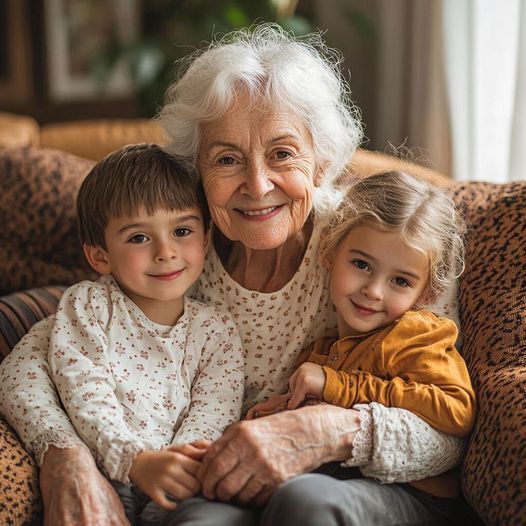If faced with a situation where a family member, like my daughter-in-law, uses my home as a form of punishment for my grandchildren, my initial reaction would be a mix of hurt and disappointment. It’s painful to learn that my home, which should be a haven of warmth and safety, is instead viewed as a place of reprimand. A home should be a refuge, a place where children feel love, joy, and security, not a setting for discipline or discomfort.
While this realization would sting, I would focus on the well-being of my grandchildren, just as you did in your story. Children are sensitive to their surroundings, and the last thing I would want is for them to associate my home with negativity. Instead, I would make every effort to ensure that they feel welcome and cherished whenever they visit.
Your choice to maintain a positive and nurturing environment despite Amanda’s comments is commendable. It’s easy to respond with frustration or resentment when someone misrepresents your home, but you chose a different path. By creating a warm and engaging atmosphere, you effectively countered the negative image Amanda had painted.
This approach not only reassured the children but also emphasized your commitment to their happiness and security. Children often pick up on the emotions of the adults around them. When they see a grandparent responding with love instead of frustration, they learn valuable lessons about resilience, kindness, and understanding.
In addressing Amanda, I would seek to communicate openly and empathetically. It’s important to remember that her comments likely stemmed from her own stress or frustration, rather than a true desire to hurt or undermine me. By approaching her with patience, I would aim to understand her perspective while also expressing my own feelings.
Recognizing that her words affected both me and the children, I would have a calm discussion with her. Open dialogue can help prevent misunderstandings from turning into long-term conflicts. Expressing how her words impacted me without placing blame would be crucial in fostering a constructive conversation.
At the same time, I would stress the need for a respectful and supportive approach to family dynamics. Families thrive when there is mutual understanding and cooperation. Instead of allowing this situation to create distance between us, I would work towards strengthening our relationship for the sake of the children.
Taking a cue from your creative solution, I would also aim to make visits enjoyable and positive. Instead of letting the children feel like they were being sent to my house as a form of punishment, I would turn their visits into something they look forward to.
Transforming the situation into a fun and magical experience for the children, as you did, helps shift their perception. Engaging in playful activities like magic tricks and potion-making turns the visits into something they eagerly anticipate, rather than dread. These small but meaningful experiences create lasting childhood memories that they will carry with them into adulthood.
Additionally, I would make an effort to involve Amanda in some of these positive moments. Encouraging her participation in activities with the children could help her see my home in a new light. Instead of being a place where she sends them as a consequence, she might come to appreciate it as a space of love and connection.
When addressing the issue with Amanda, I would be firm yet forgiving. It’s important to convey that involving the children in adult conflicts is unacceptable and that their well-being should be a priority. At the same time, showing understanding and leaving room for improvement can help foster a healthier relationship moving forward.
Acknowledging Amanda’s efforts to improve the situation, such as bringing baked goods and spending more time with the children, would help build a bridge of mutual respect. Sometimes, small gestures can signify a willingness to mend relationships, and I would make sure to recognize and appreciate her efforts.
By keeping the focus on the well-being of the children, I would ensure that their emotional needs are prioritized. Children thrive in environments where they feel secure, valued, and loved. No matter what challenges arise, that would always be my main goal.
Ultimately, my goal would be to ensure that the children feel loved and secure. A grandparent’s role is to provide warmth, guidance, and unconditional love. Through patience and positive reinforcement, I would work to create a space where my grandchildren feel safe and joyful.
Your story illustrates how kindness, open communication, and creativity can transform a challenging situation into an opportunity for growth and connection. In every family, there are moments of misunderstanding, but how we respond determines the strength of our relationships.
By focusing on positive experiences and fostering mutual respect, it’s possible to improve family dynamics and build stronger bonds. Instead of allowing negativity to take root, choosing love, understanding, and creativity can lead to healing and a more harmonious family life.
